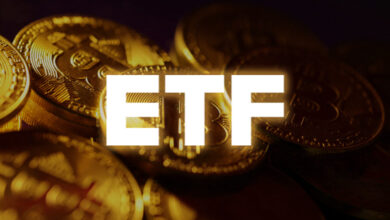Token Creation Now Available On Bitcoin Cash

Bitcoin.com launches a powerful developer framework for token creation on the Bitcoin Cash blockchain, adding a significant rival to Ethereum, just days after Bitmain announced their Wormhole protocol.
Developed by Bitmain, Wormhole – an Omni Layer fork – represents the latest step in enabling crowdsales, tokenization, ICO creation, and permissionless smart contracts, all on Bitcoin Cash (BCH) and without altering BCH consensus rules.
The Wormhole protocol was unveiled by the bitcoin mining giant Bitmain on August 9th at their BCH 1-Year Anniversary event in Hong Kong.
The new Wormhole SDK just published by Bitcoin.com adds an additional javascript framework, enabling every basic aspect of ERC20 functionality, including token creation, on the BCH blockchain.
Blockchain developers now have an alternative to Ethereum for creating tokens and ICOs.
Wormhole developers explain the software’s BCH OP_RETURN code is equivalent to the Omni Layer process, which is “the technical basis for daily distribution and circulation of USDT (Tether).” Similarly, Wormhole Cash (WHC) is a superset of BCH. Every Wormhole transaction is an on-chain BCH transaction with an OP_RETURN.
The BCH community has been clamouring for token creation systems, a gap that Wormhole developers sought to close with this series of interventions. Accordingly, WHC supports the creation of three kinds of tokens: fixed, crowdfunded, and manageable. Users can create WHC by using Wormhole protocol to send one or more BCH to the burn address. But burning BCH isn’t the only way to use WHC: Earlier this month, Coinex became the first trading platform to list the currency.
Lead Developer Jiazhi Jhang explained recently that Wormhole achieves security and consensus using BCH’s proof-of-work protocol and UTXO model. The UTXO application’s benefits, he says, include greater decentralization—as BCH offers decentralized timestamps for each transaction—and a higher TPS rate. Moreover, Wormhole’s two-layer security approach is founded on BCH transaction security.
Of Wormhole’s potential, BCH developer Gabriel Cardona says: “We see Wormhole as a solution to a number of problems, such as Turing-complete high-level scripting languages, smart contracts, ERC20 (ICO and crowdsale), and ERC721 (CryptoKitties) tokens.”
Of what’s already been achieved using Wormhole protocol, Cardona shares, “Already, we’ve created tokens with fixed supply and manageable supply, issued and revoked tokens, and created a custom token [Life Extension Token, LET] for a crowdsale.”
The Wormhole launch represents a paradigm shift in the potential for BCH-based innovation. Further possibilities for development are myriad—most notably token issuance and permissionless smart contracts. Wormhole is fully compatible with Bitcoin ABC version 0.17.2 and slated for an upgrade during the next regularly scheduled update.
Indeed, Wormhole developers are planning full speed ahead for 2019, with a full agenda of innovation. Future plans include upgrades known as Tropos – an update that will move towards protocol-based decentralized exchange systems – in November 2018; Ionize, in part an ERC721 integration plan, in January 2019; and Exosphere, which will make progress towards permissionless, global, and frictionless smart contracts, including the potential for a smart contract machine in the vein of Ethereum’s EVM.





